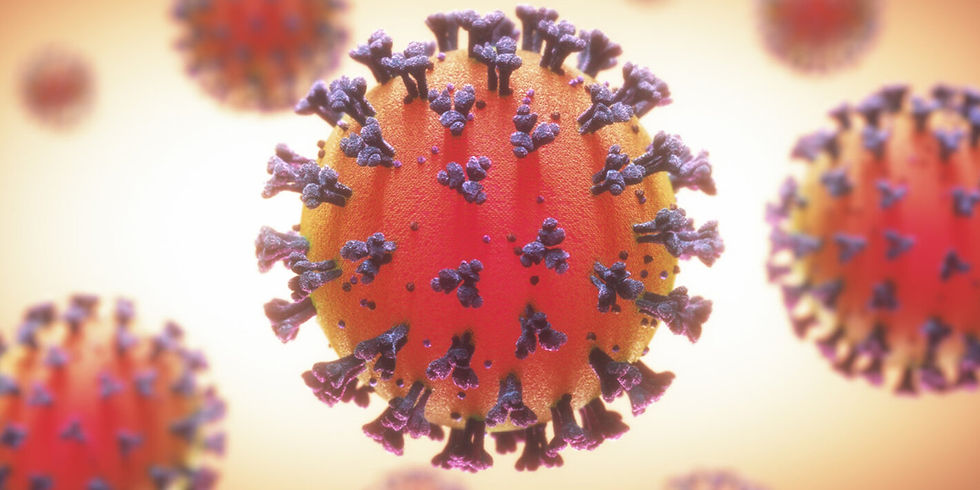SNHS Biology Blog 14: Genes May Influence COVID-19 Risk
- snhsnorthview
- Dec 19, 2020
- 2 min read
Ria Mathew
With COVID-19 on the rise, scientists have discovered genetic links which make certain people more susceptible to getting the coronavirus. Researchers have found that certain genes which control immune responses and the gene that enables SARS-CoV-2 to enter bodies could heighten COVID-19 severity for some groups of people. Also, scientists have proposed that blood type could link to the risk of getting COVID-19 but these links which have been discovered require further investigation and social and economic inequalities make the research process harder because social/economic status may cause flaw in the results. Another issue scientists face is that with the search of genetics, they may end up using ‘biased’ data sets which are composed mostly of European ancestry. By using research composed of European ancestry, the data isn’t representative of other populations which could leave gaps and omit important data. A New England School of Medicine relied on two European populations for its genetic study. In this study, researchers chose 1,610 patients hospitalized with COVID-19 in Italy and Spain to analyze DNA changes. Researchers discovered that patients infected severely had variations with genes on chromosome 3. These genes create chemokines, proteins that are involved with the immune system molecules. Chemokines attract immune cells to the tissues being attacked, which allow the immune cells to eradicate the infected cells. However, with COVID-19, the chemokines destroy the lungs because they go into overdrive. Scientists found another discovery involving patients who had to be put on a ventilator and those who only needed supplementary oxygen. Those who were on the ventilators had a genetic variant that was 1.5 times more common than those who needed supplemental oxygen. Patients that were severely affected and had 2 copies of the variant were younger than patients with only 1 copy (or none) which emphasized how having more dosage had more benefits than being younger.

These key genetic changes are linked to decreased activity of the gene which regulates chemokines, and is correlated with the increased activity of the gene that encodes the protein which interacts with the gatekeeper for COVID-19’s entry into cells. The gatekeeper, angiotensin-converting enzyme 2 (ACE2) is active in tissues. Researchers in the New England Journal of Medicine study also discovered a link with a region on chromosome 9, which determines blood type. Patients with the gene for type A had 1.5 times the chance of respiratory failure, compared to people who had other blood types. People with type O for example, had lower chances of failure. Previous studies that were published in preprint papers associated blood type A with a higher chance of getting COVID-19 and reported a lower risk for type O. With all these genetic links, the area on chromosome 3 is the highest indicator of disease severity. Priya Duggal states how the blood type link is less certain, but other factors unrelated to the coronavirus could explain the results, but blood type is not an unlikely link because it has been linked to the risk of getting malaria, and other diseases. With research about diseases, scientists can get a better understanding about biological links in disease susceptibility/resistance which can help with creating drugs and analyzing the biology in severe COVID-19 cases could eventually create therapies for all affected patients, not just for people with specific genetic changes.






Comments